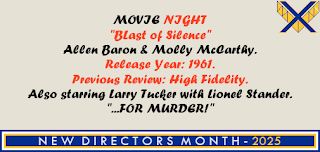Cast:
Megumi Ogata (Shinji Ikari), Kotono Mitsuishi (Misato Katsuragi), Megumi Hayashibara (Rei Ayanami), Yūko Miyamura (Asuka Langley Soryu), Akira Ishida (Kaworu Nagisa), Fumihiko Tachiki (Gendo Ikari), Motomu Kiyokawa (Kozo Fuyutsuki), Yuriko Yamaguchi (Ritsuko Akagi), and Hiro Yuki (Makoto Hyuga) Directed by Kazuya Tsurumaki and Hideaki Anno.
Review:
"Evangelion is my life and I have put everything I know into this work. This is my entire life. My life itself.”
Naturally. You may or may not have a pretty good idea of what Neon Genesis Evangelion is. The original anime (aired from October 4, 1995 - March 27, 1996) was directed by Hideaki Anno, who had developed the series as a way of dealing with personal responsibility that reflected his depression that he had suffered years prior. Born in Ube, Yamaguchi in Japan, he had an interest in artwork and short films from a young age, which paid off when he read an ad for a film (Nausicaä of the Valley of the Wind) that needed more animators. Anno helped to co-find the studio Gainax in 1984 and worked in animation direction on a variety of films and shows. Royal Space Force: The Wings of Honnêamise (1987) saw him work on key aspects of the design but also saw him affected by the film's failure with audiences. His debut as a director came with the anime Gunbuster (which ran from 1988-89). However, the lack of creative control given to him in his next work with Nadia: The Secret of Blue Water, which came about from a decade-old pitch from Hayao Miyazaki that Anno served as a chief director before handing over duties in the middle of it due to exhaustion (having just seen the anime in its padded length of 39 episodes, well...). Anno suffered from depression for a number of years after Nadia came out. Okay, so there were actually two movies when it comes to the Evangelion feature film project. Neon Genesis Evangelion: Death & Rebirth (as directed by Hideaki Anno, Masayuki, and Kazuya Tsurumaki) came out in 1997 that, well, I didn't feel like covering because it basically is just there for those who don't want to watch the first 24 episodes anyway (to say nothing of the edits such as "Evangelion:Death (True)"). The End of Evangelion was directed by Anno along with his protege Kazuya Tsurumaki, who had directed a handful of the aforementioned anime. Since the release of the film, Anno has directed in both live-action and in anime form, most notably with Shin Godzilla (2016) and, well, a "Rebuild of Evangelion" tetralogy (2007, 2009, 2012, 2021) that served as an alternate retelling of the show that saw Anno and Tsurumaki direct the four films.
Okay, so the final couple of episodes may or may not have confused people (jokingly or not, I interpreted it as "Touch grass"). For all of the labels and things one can discuss in tandem with the anime ("Postmodern", on a religious scale, Freudian, whatever), it really is just one of those times where, well, you just have to experience it for yourself to really absorb what it takes to create something for the public. To be around people is to know that they will let you down just as much as you may let down others but that you just have to keep going in the face of reality. Sure, the anime was a phenomenon because, well, it looked and sounded cool (we do not speak of people that act as fans of characters), but it also was a show that wanted one to actually look at themselves and connections. For me, I took some of it as a mecha soap opera (maybe with a little bit of calling it "self-therapy") and just "rolled with it" while being quite fond of the penguin and "Misato" (thinking back, it doesn't hurt to be the second banana in my rankings). With that in mind, the movie is pretty neat in terms of its animation (and uh, a few choice ideas near the end) and its overall reach in terms of dread that actually could be thought of as bleakly amusing for some. Life is bleakly amusing but if you choose to accept the parameters, you can make your own path, I suppose. When one looks back at both the anime and film, you don't feel like you're watching a cash-grab with the latter because it still seems fresh and interesting to see the introspection, ourselves or otherwise. It rests with Ogata in terms of looking at the anguish and doubts that arise in the dilemma of oneself (each of these people have their illusions that they would rather not see come across). I appreciate that blend of action and psychological/existential horror, which could be highlighted in a variety of scenes, such as the buildup to the climax or the awakening to Asuka. As a whole, regardless of where one is with anime or animation, The End of Evangelion is an experience worth seeking out for oneself.
Overall, I give it 9 out of 10 stars.
Well, we have finished another New Directors Month. I wanted to open up a bit of variety with the choices this time around, and there were a wide variety of directors (and films) that missed out for the month (which either means I'll get to them sometime in 2025 anyway or maybe do in 2026):
[Nagisa Ōshima] In the Realm of the Senses, [Douglas Sirk] Imitation of Life
Tim Hunter's River's Edge, [Monte Hellman] Two-Lane Blacktop, [Terence Malick] Badlands
[Robin Swicord] Wakefield, [Sam Wood] Our Town, [Burt Balaban and Stuart Rosenberg] Murder Inc
[Lars von Trier] Dogville, [Robert Benton] Bad Company, [Frank Beyer] Jacob the Liar (1975)













